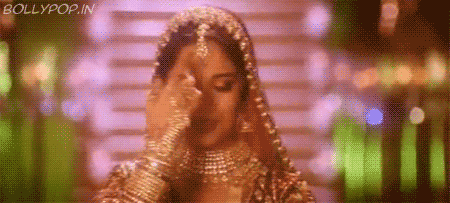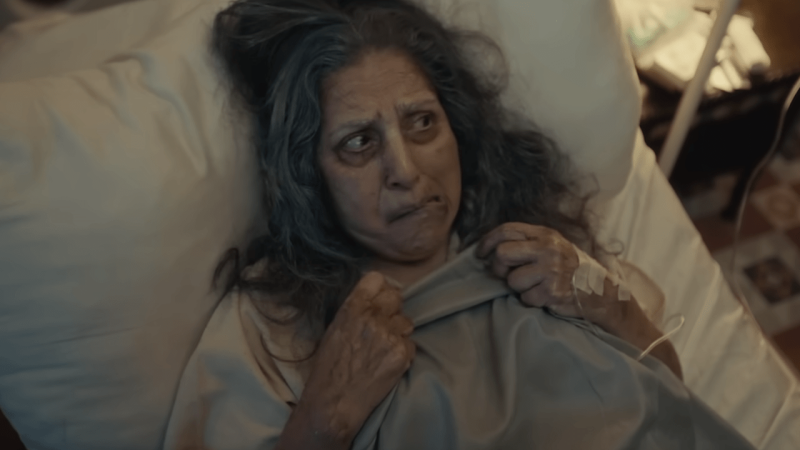Better late than never: Shahrukh Khan’s 'Devdas' to hit screens today
Sanjay Leela Bhansali’s Devdas is all set to hit screens for the first-time-ever in Pakistan after the film was released 12 years ago in India.
According to a representative of IMGC Global, people have been clamouring to find out about the movie's release date ever since news of its screening broke. She also added that "the film's print is one of its kind" which will probably cause people to come back for more.
Bhansali’s Devdas, starring Shahrukh Khan, Aishwarya Roy Bachchan and Madhuri Dixit was a remake of Bimal Roy's Devdas (1955) starring Dilip Kumar, Suchitra Sen and Vyjayanthymala.
A love story known to all, Devdas is a tragedy that follows the life of a couple, rich-boy Devdas and girl-next-door Paro, both madly in love with each other. Class differences force them to drift apart, with Paro marrying a rich landlord and Devdas drowning his sorrows at a brothel helped by a prostitute, Chandramukhi (Madhuri Dixit). The end is more or less similar to Heer Ranjha or Romeo or Juliet.
But is Devdas still relevant today, and should we watch it? Yes, it is, and these four dialogues from the film prove our point:
1. The “log-kya-kahenge” dilemma:
Devdas falls in love with his childhood chum, Parvati (Paro) and wants to marry her: all appears smooth but wait — here comes the family who refuses to accept their decision and separates them. When Devdas meets his mother after a long separation (and spell of alcoholism) she turns him away and he says:
“Babuji ne kaha gaon chor do... sab ne kaha Paro ko chor do... Paro ne kaha sharab chor do...aaj tumne keh diya haweli chor do... ek din aayega jab woh kahenge, duniya hi chor do”
 |
| Courtesy: erosnow |
(Father asked me to leave the village, everyone asked me to leave Paro, Paro asked me to leave alcohol and today you’re asking me to leave your home— one day I’ll be asked to leave this very world.)
2. Every loss edges you closer to victory:
There we have it: Pakistan making it to the Quarter-Finals in the ICC World Cup 2015. All those who lost faith in the men in green, these words by Chandramukhi are for you:
“Har dukh aanay walay such ki chitti hoti hai…aur har nuqsaan hone walay faiday ka ishaara.”
 |
| Courtesy:wordpress |
(Every sorrow is the letter for the coming happiness ... and every loss is an indication of the coming profit)
3. The patriarchal arrogance:
In Devdas, as in life, women are defined by their roles in relation to men, and this comment by Devdas to Chandramukhi (who by the way stands firmly by his side when he falls ill) proves it:
“Aurat maa hoti hai, bahen hoti hai, patni hoti hai, dost hoti hai ... aur jab woh kuch nahi hoti, toh tawaif hoti hai”.
 |
| Courtesy: media.indiatimes |
(A woman is a mother, a sister, a wife, a friend... and when she is nothing, then she is a prostitute.)
4. Breaking stereotypes—women needn’t back down:
Just like Devdas feels strongly about roles defining women, we have Paro who has the perfect response for his chauvinism. When her in-laws are opposed to her visiting the kotha (brothel) Paro softly but remarkably answers:
"Kyun bari maa? Kia wahan insaan nahin bastay? kiya wahan hawaain nahin chaltin? kiya un badnaam galiyon main sooraj ki roshni nahin pohanchti? Kiya kabhi badal wahan barsanay se inkaar kartay hain? Jab qudrat bhi nahin maanti to hum kyun maanain?"
 |
| Courtesy: Giphy |
(Why not mother? Do humans do not live there? Do winds not blow there? Do the rays of the sun not reach those vilified lanes? Do clouds refuse to shower rains there? When nature doesn't refuse them then why should we?")











